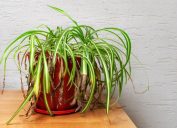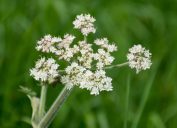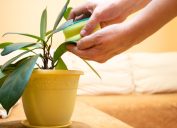If Your Plants Are Drooping, This Bathroom Product Will Revive Them
You probably already have this at home, and it could save your houseplants.
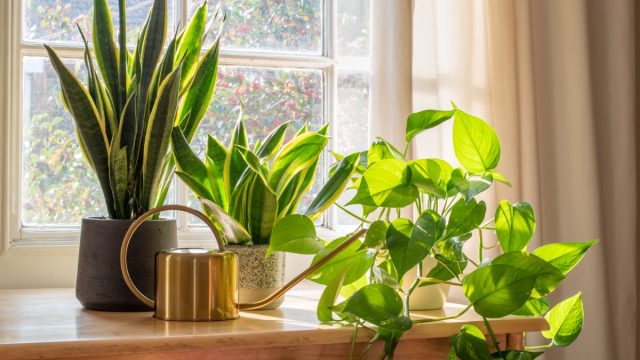
A drooping plant is sad to see, and when you consider yourself a seasoned plant parent, it can be that much more disheartening. There are plenty of tips and tricks to restore your houseplants to their former glory, but you'll have to figure out which mode of attack will be most effective. Before you give up on a wilting plant that looks like it's on the way out, consider using one bathroom product plant experts swear by. Read on to learn about this easy fix for a common plant plight.
RELATED: If Your Plants Are Dying, This Simple Trick Will Revive Them.
Hydrogen peroxide can help stop the spread of root rot.
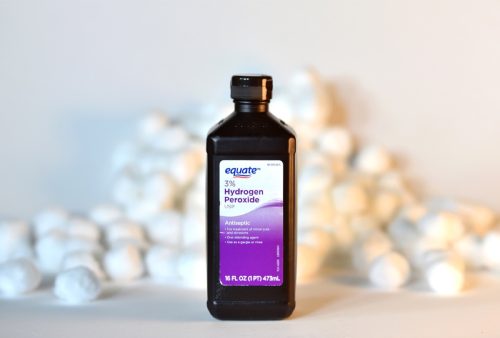
If you notice your plant is wilting and drooping when it was lively just the day before, you might want to check its roots. If they smell and are "dark and mushy," this is an indicator your plant is a victim of root rot caused by overwatering, Apartment Therapy says. If you notice that your plant's roots are in need, head to your medicine cabinet—hydrogen peroxide may be able to help out.
According to Naomi Robinson, founder of Houseplant Authority, hydrogen peroxide's formula is similar to water, just with an additional oxygen molecule. This extra molecule is actually helpful for your plants' root health, Aaditya Bhatta, editor, and founder of Plants Craze, explains.
"Hydrogen peroxide consists of chemical compounds that kill bacteria that cause root rot in plants and release extra oxygen into the soil to promote root growth," Bhatta says. "The oxygen in hydrogen peroxide breaks down into oxygen and water in soil, not carbon dioxide."
Robinson notes that hydrogen peroxide can't reverse root rot that's already affecting your plant, but it can help stop the spread and salvage remaining roots.
Here's how to use hydrogen peroxide on your plants.
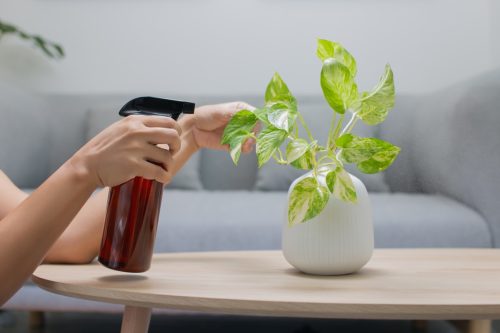
Hydrogen peroxide has its benefits, but that doesn't mean you'll want to dump the bottle directly into your potting soil. According to Robinson, it's important to use a diluted solution, as straight hydrogen peroxide could burn your plant. To address root rot, she recommends mixing one tablespoon of 3 percent hydrogen peroxide with one cup of water and spraying plants with the solution twice a week. Spot treatment might not be an absolute fix for the issue, Robinson says, so you will need to take an extra step.
"In the case of root rot, it's not enough to simply spray the hydrogen peroxide solution on your plant's soil or roots to fix the problem," she added. "Instead, you will need to combine this with other strategies to prevent root rot, like repotting your plant in fresh soil with appropriate drainage and assessing your watering schedule."
In addition to rotting roots, a hydrogen peroxide solution can also be effective at helping ward off fungus and hidden pests. If you notice leaves changing color or texture—including those that become distorted, spotted, or speckled—this is a dead giveaway your plant has some unwelcome bugs, Robert Frankson, an expert from Wild Yards, says. Robinson recommends mixing one teaspoon of hydrogen peroxide and one cup of water to use as a fungicide or pesticide.
You can use hydrogen peroxide to stop an issue with your plants before it starts.
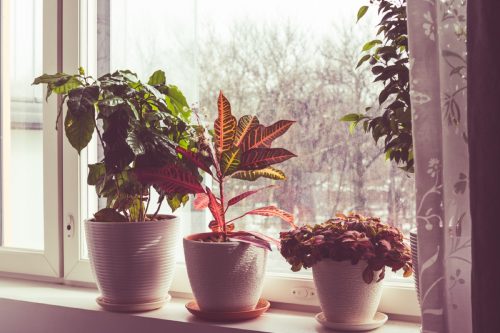
Plant experts note that you don't have to wait until your plant shows signs of root rot or other pests—you can also use hydrogen peroxide as a preventative measure. Just as hydrogen peroxide is used to sterilize cuts and wounds, it can be used to sterilize different parts of plants, Ayelet Faerman, chief operating officer of Verdant Lyfe, says.
When you first buy your plants and soil, you can take an extra step and use a hydrogen peroxide solution to sterilize new potting mix. "Just because you bought your soil from the store doesn't mean it's pest-free, and adding some hydrogen peroxide can help to ensure you're not accidentally introducing some unwanted friends to your houseplants," Robinson explains.
But you should only use hydrogen peroxide to treat certain plant problems.
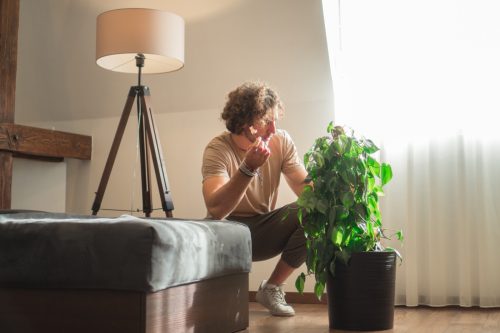
Hydrogen peroxide is not a "fix-all" solution, according to Frankson, and it should not be used as a long-term solution for your plants. "The acidic nature of hydrogen peroxide can destroy the healthy plant cells, subsequently affecting wound healing," he says. Robinson further cautions that the solution can sometimes be too strong—even when diluted—for plants that are "young or weak."
At the end of the day, you'll need to determine why your plant is drooping and whether or not hydrogen peroxide is the right remedy. It could be that your plant is in need of more light and may liven up if it's moved to a sunnier spot, Robinson says. "Take the time to work out the issue so that you can get your houseplant back to its happy, thriving self in no time," she adds.
RELATED: 6 Plants Attracting Mice to Your Home.
